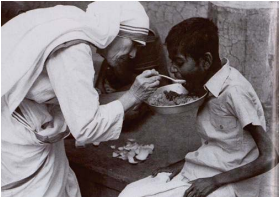In the course of any parish priest’s day, there are many varied activities. Really, from concern over some item of the buildings to time spent with a family grieving the death of a loved one, the spectrum is broad and deep – and I love it! Often the activity that is the most important and precious is listening. We priests are good
listeners – at least we try to be! Now that might not sound like “heavy lifting” – yet there are many times when it is! It depends on the matter being discussed. If it
is about the future of a cherished quarterback for the New England Patriots, that is one thing; if the subject is a family coping with a loved one diagnosed with a
terminal cancer, that is something else.
Listening, in any event, calls one to offer complete attention to the other – and often we do not listen that way! As we hear another speaking, we are inclined to
anticipate what the individual will say and then formulate our response before the person has finished speaking! At other times, one’s mind is elsewhere while
another is speaking. Many of us have done this and have been in conversations where this is common, and when we reflect on it we come to realize that this is not true listening.
Some years ago, Carl Rogers, a noted psychologist and prolific author, introduced a new way of looking at effective therapy. Among other things, he suggested that what he called; “Unconditional Positive Regard” was crucial to effective psychotherapy. Rogers was talking about how we listen. He taught that healing can
take place when, in an encounter, a listener gives his/her entire attention to the other in a positive and nonjudgmental way, allowing the person to speak and accepting without judgment whatever is said. A person’s hurts, brokenness, shame, anxiety, fear, inferiority, confused identity, and so much more can improve. On
the one hand, it sounds so elementary and yet, in truth, it is so profound.
This very experience happens all the time, among friends, spouses, colleagues, and teachers …. It is that phenomenon of one human being caring for another; caring in such a way as to make it possible for another to experience and grow in love and, at times, to help another to open up and unburden all kinds of trouble and pain that is within. We all need such opportunities, and everyone is healthier because of them. At the same time, we all know there are some parts of life, some experiences, choices, and actions that are very difficult and cannot easily be spoken about. Sometimes a priest can help.
Actually, it is better to say, all the time, God can help. And God has chosen, for God’s own reasons, to be present to us in countless ways. A very specific and deeply helpful way in which God is present is through the Sacraments of the Church. The Sacrament of Reconciliation often referred to as “Confession”, is one of these Sacraments. The fact that few use the Sacrament in these days does not diminish its value and its availability to be a source of Grace and healing for those who approach this precious gift.
Since my Ordination as a Priest in June 1982 to this present day, I am in awe of how God uses this sacrament to bring His love to people in these moments. Further, while I am well aware of the effectiveness of counseling and therapy – the listening that happens in this Sacrament occasions a time of Grace: God is present and the Priest serves only as an instrument of this Grace in ways that are far beyond understanding.
A priest is available every Saturday afternoon from 3:15 – 3:45 in the Confession corner in the upper Church. In addition, any person can contact the Parish Office to set up an appointment to celebrate the Sacrament of Reconciliation.
Rogers is right – lovingly listening to another can be a wonderful and healing experience. Imagine how much more such a moment can be when one seeks God in the Sacrament of Reconciliation and the fruits of that are forgiveness, healing, and consolation.
Fr. Ronan

Twenty-Fourth Sunday in Ordinary Time
September 11/12, 2021
St. James asks what our love for Jesus Christ can possibly mean if it does not result in action on behalf of, and to benefit, our neighbor.
He suggests that faith in Jesus Christ is demonstrated most profoundly in our care for the needy, the suffering, and the underprivileged.
Stewardship includes proclaiming the Good News by putting our faith into action on behalf of others.
In what ways have we been willing to make sacrifices and renunciations for the sake of Jesus Christ and our neighbor
